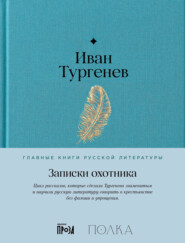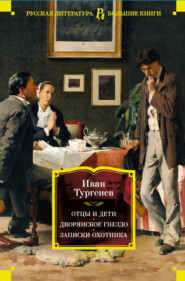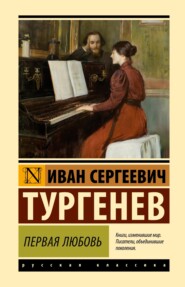По всем вопросам обращайтесь на: info@litportal.ru
(©) 2003-2024.
✖
Annouchka: A Tale
Настройки чтения
Размер шрифта
Высота строк
Поля
"We will wait for her," Gaguine said to me.
We entered the house, and I sat down beside him. We were silent; a painful constraint was on us both. On the alert for the least sound, sometimes we looked at each other stealthily, sometimes we cast our eyes upon the door.
"I can stay here no longer!" said he, rising; "she will kill me with anxiety. Come, let us look for her."
"Yes, let us do so!"
We went out; it was already night.
"Come, tell me what happened," demanded Gaguine, drawing his hat over his eyes.
"Our interview lasted but five minutes at the utmost, and I spoke to her as we agreed upon."
"Do you know," said he, "I think we had better separate. Let us look for her each on his own responsibility; that is the quicker way to find her; but in any case return to the house in an hour."
XIX
I hastened down the path that passed through the vineyards and entered the town; after hurrying through all the streets and looking in every direction, even at Dame Louise's windows, I came back to the Rhine, and ran along the river bank. Here and there was a figure of a woman, but none of them Annouchka's. It was no longer vexation that consumed me, but a secret terror; still more it was repentance that I felt, boundless pity, finally love – yes, the deepest love. I threw my arms about; I called Annouchka; at first, as the shades of night were deepening, in a low voice, then louder and louder; I repeated a hundred times that I loved her, swearing never to leave her; I would have given all that I possessed to press once more her cold hand, to hear once more her timid voice, to see her once more before me. She had been so near me; she had come to me with such resolution, in all the frankness of her heart; she had brought me her young life, her purity, – and I did not take her in my arms; I had foregone the happiness of seeing her sweet face brighten. – The thought drove me mad!
"Where can she have gone? what could she have done?" I cried, in the impotent rage of despair.
Something whitish suddenly appeared at the edge of the water. I recognized the place. There, above the grave of a man who drowned himself seventy years before, arose a stone cross, half sunken in the ground, covered with characters almost illegible. My heart was beating as though it would break. The white figure had disappeared.
"Annouchka," I cried, in such a fierce voice, that I even frightened myself.
But no one answered; I finally decided to go and find out whether Gaguine had not found her.
XX
Quickly going up the vineyard road, I perceived a light in Annouchka's room. This sight calmed me a little. I approached the house; the entrance door was closed. I knocked. A window that had no light opened softly in the lower story, and Gaguine thrust out his head.
"You have found her?" I asked him.
"She has returned," he answered in a low voice. "She is in her room and is going to bed. All is for the best."
"God be praised!" I cried, in a paroxysm of indescribable joy. "God be praised! Then everything is all right; but you know we have not had our talk together."
"Not now," he answered, half closing the window; "another time. In the meanwhile, farewell!"
"To-morrow," I said, "to-morrow will decide everything."
"Farewell," repeated Gaguine.
The window closed.
I was upon the point of knocking at it, – I wished to speak to Gaguine one instant longer, to ask his sister's hand, – but a proposal of marriage at such an hour! "To-morrow," I thought, "to-morrow I shall be happy."
Happiness has no to-morrow; it has no yesterday; it remembers not the past; it has no thought of the future; it knows only the present, and yet this present is not a day, but an instant.
I know not how I returned to Z. – It was not my legs that carried me, it was not a boat that took me to the other side; I was wafted along, so to speak, by strong, large wings.
I passed a thicket where a nightingale was singing. I stopped, listened a long time; it seemed to be singing of my love and my happiness.
XXI
The next morning, on approaching the white house, I was astonished to see the windows open, also the entrance door. Some pieces of paper were scattered about the threshold; a servant, her broom in her hand, appeared at the door. I approached her.
"They have gone!" she exclaimed, before I could ask whether Gaguine were at home.
"Gone!" I repeated; "how is that? Where have they gone?"
"They went this morning at six o'clock, and did not say where they were going. But are you not Monsieur N – ?"
"Yes."
"Very well! my mistress has a letter for you."
She went upstairs, and came back with a letter in her hand.
"Here it is," said she.
"You must be mistaken, it's impossible!" I stammered.
The servant looked at me vacantly, and began to sweep.
I opened the letter; it was from Gaguine. Not a line from Annouchka!
In beginning, he begged me to forgive him for this hasty departure. He added that when I was calmer I would approve, no doubt, of his determination. It was the only means of getting out of an embarrassing position, and one that might become dangerous.
"Yesterday evening," he said to me, "while we were waiting for Annouchka in silence, I was convinced of the necessity of a separation. There are prejudices that I respect; I can understand that you could not marry her. She has told me all, and for her sake I must yield to her urgent entreaties."
At the end of his letter he expressed regret at the breaking off of our friendly intercourse so soon; hoped that I would always be happy; pressed my hand, and begged me not to try and meet them again.
"A question of prejudices indeed!" I exclaimed, as if he could hear me. "Folly all that! What right has he to take her away from me?" I clutched my head wildly.
The servant began to scream for her mistress, and her fright brought me to my senses. I felt that I had but one object: to find them again; to find them again at any cost. To bear such a blow; to resign myself; to see things end in this way was truly beyond my strength! I learned from the landlady that they went at six o'clock to take the steamboat down the Rhine. I went to the office; they told me that they had taken places for Cologne. I returned to my house to pack up and immediately follow them.
As I passed Dame Louise's house I heard some one call me. I raised my head and perceived the burgomaster's widow at the window of the room where the previous evening I had seen Annouchka. Upon her lips hovered that disagreeable smile that I had noticed before. She beckoned to me. I turned away, and was about to go on, but she called out that she had something to give me. These words stopped me, and I entered the house. How can I express to you my emotion, when I found myself again in that little room.
"To tell the truth," began the old woman, showing me a note, "I should only have given you this if you had come to my house of your own accord; but you are such a fine young man – there!"
I took the note; I read upon a little piece of paper the following lines, traced in haste with a pencil: —
"Farewell! we shall see each other no more. It is not through pride that I go away; I cannot do otherwise. Yesterday, when I wept before you, if you had said to me but one word, a single word, I would have remained. You did not say it. – Who knows? Perhaps it is for the best that it is so. Farewell forever!"
She had expected but "one word!" Fool that I was! That word I said the previous evening again and again with many tears; I threw it to the wind; I cried it out in the midst of lonely fields: but I did not say it to her; I did not tell her that I loved her! Yes, it was then impossible for me to pronounce that word. In this fatal room, where I found myself face to face with her, I was not yet fully conscious of my love; it did not awaken even then, when in a dull and gloomy silence I stood near her brother, – it only burst forth, sudden and irresistible, a few moments after, when, terrified by the thought of a misfortune, I began to seek her, calling aloud; but then already it was too late! – It is impossible, they will tell me; – I know not if it is impossible, but I know that it was so. Annouchka would not have gone if she had had the least coquetry, if she had not found herself in an essentially false position. An uncertain position that any other woman would have accepted she found intolerable. This did not occur to me. My evil genius, then, at my last interview with Gaguine, under his dark window, had checked that confession which was upon my lips, and thus the last thread that I could have seized had broken in my hands.
I returned the same day to L. with my traps, and started for Cologne. I often remember that at the moment when the steamboat left the shore, and when I said farewell to all those streets, to all those places that I should never forget, I perceived Hannchen, the little servant-maid.

















